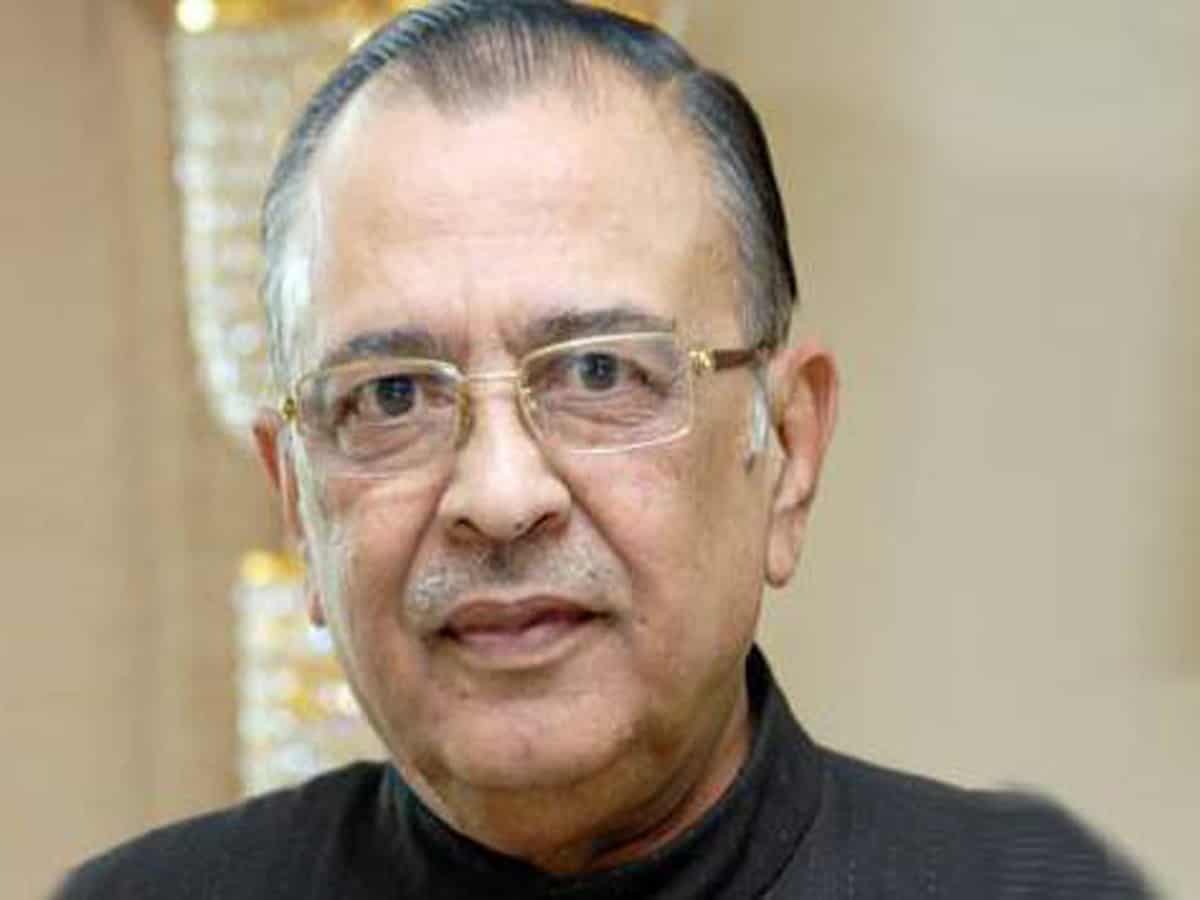
Hyderabad: “Siasat’s 75 years of service in Urdu journalism is a milestone in the 200 years’ history of Urdu journalism. The daily offered many sacrifices and never compromised with its standard and quality. The founding editors Padamshri Abid Ali Khan and Mehboob Hussain Jigar have nurtured the daily with their earnestness and hard work to serve not only Siasat but Urdu journalism as well.” These were the opinions presented by speakers in the conference held on the occasion of 200 years of Urdu journalism.
The conference, which was organized by Urdu journalism – 200 years celebration committee, was held on Wednesday, March 30 at New Delhi’s India International Islamic Culture which was graced by the former Vice President Mohammad Hamid Ansari. Gulam Nabi Azad, Prof Akhtar ul Wasey, Dr. Syed Farooq (Himalaya drugs) MP Nadeem Ul Haq, Meem Afzal former MP were other prominent personalities on the dias.
Hamid Ansari paid rich tribute to Zahid Ali Khan’s 55 years of journalistic service in the journey of Siasat’s 75 years and in acknowledgement he was presented the Maulana Abdul Wahid Siddiqui award which was received by Siasat News Editor Amer Ali Khan.
Urdu readers decreasing
Speaking on the occasion Hamid Ansari said that the population of the country is growing but the number of those reading and writing Urdu is decreasing which is a matter of concern.
The former President of India pointed out that there is a shortage of Urdu teachers in schools. “Until and unless Urdu is being taught in schools the number of its speakers will not increase. Those who want to study Urdu in schools are forced to take it as a second language.”
“It is extremely unfortunate that Urdu is being linked to Muslims. They did not give due attention to the language it deserved. However, Urdu is not the language which is likely to be extinct. Teaching Urdu to your children is the only way of keeping the language alive,” he said.
“In spite of shortcomings by the Urdu speakers in India, it is prospering across the globe. It’s not only the language of India but has become the International language. Urdu newspapers and magazines are being published from USA, Australia and other countries where Urdu is being spoken widely,” the former vice president said.
Professor Akhtar ul Wasey of Maulana Azad University Head said that the language has no religion. Had it been so, the founders of the first Urdu newspaper Jaan-e-Jahan-Numa would not have been Sada Sukhlal Lal and Hari Dutt.
In his key speech in the second session of the conference, the Head of the Department of Journalism, Muslim Aligarh University, Prof Shafi Kidwai said that the media today is not presenting the facts rather it gives spin to the facts. Earlier the newspapers were presenting the facts whereas the media today is busy presenting post-truth facts. The Urdu journalism today as rightly described by Maulana Wahiduddin Khan is “a journalism of protest”.
Urdu must be linked with livelihood
Prominent Journalist Kurbaan Ali said until Urdu is linked with livelihood neither Urdu journalism nor Urdu Dailies will prosper. The owners of the Urdu Dailies are not prepared to spend money. They pay very meager salaries to their reporters and journalists.
Speaking on the woeful situation of Urdu dailies, the editor of Mumbai Urdu Daily “Hindustan” Sarfaraz Arzoo pointed out that lack of advertisement makes the continuation of Urdu daily a difficult task. These dailies are facing existential challenges today.
The Chief Editor of “Aag Lucknow” Ibrahim Alvi said the only way of saving Urdu is to teach it to our children in our homes.
Other prominent speakers in the conference were editor of Urdu Daily “Nadeem”, Bhopal Arif Aziz, Shaheen Nazar, Dr Syed Farooq MP, Nadeem-ul-Haq, Raees Mirza and others.
Awards presented
Many Urdu journalists were given awards and mementos in the Conference including the former Head of UNI Urdu Abdul Salam Asim.
Dr. Marzia Arif presented a copy of her book “Jahan-e- Fikr-o-Fan” to the former Vice President of India Hamid Ansari.
The comparing of the first session was conducted by the prominent journalist Masoom Moradabadi while the second session was done by well-known journalist Sohail Anjum.



